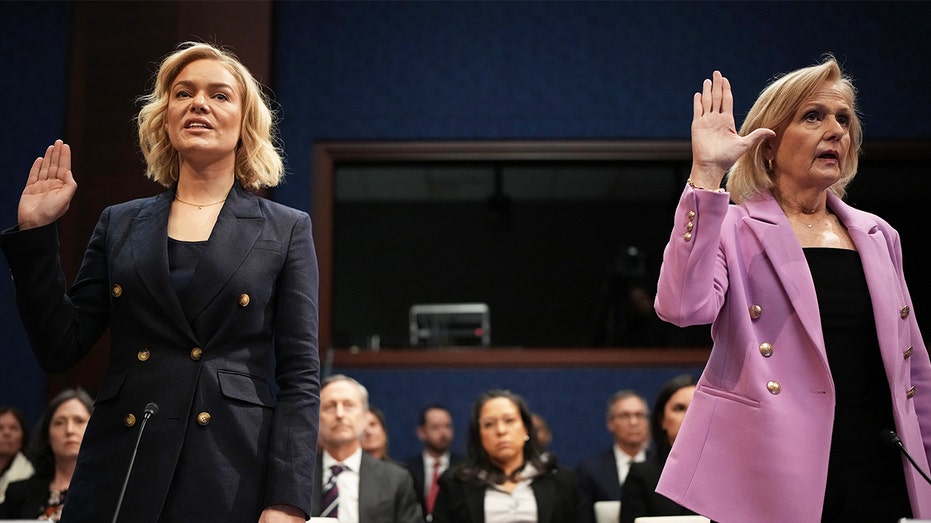NPR, PBS Chiefs Defend Coverage Amid GOP Bias Claims

The CEOs of NPR and PBS faced tough questions from Republican lawmakers on Wednesday regarding accusations of biased reporting and the use of taxpayer money. Katherine Maher, NPR's CEO, and Paula Kerger, who leads PBS, appeared before a House subcommittee to address concerns about their networks' content. Republicans argued that the coverage leans too far to the left. The hearing highlighted the ongoing debate about media objectivity and government funding of public broadcasting.
Washington, D.C. The heads of National Public Radio (NPR) and the Public Broadcasting Service (PBS) found themselves in the hot seat on Wednesday, facing intense scrutiny from Republican members of Congress over allegations of biased news coverage. NPR CEO Katherine Maher and PBS CEO Paula Kerger testified before the House Subcommittee on Digital Governance and Essentialism (DOGE), defending their organizations' journalistic integrity and the use of taxpayer dollars.
Republican lawmakers voiced concerns that NPR and PBS exhibit a liberal bias in their reporting, pointing to specific examples they deemed unfair or misleading. They questioned the CEOs about editorial decisions, content selection, and the overall direction of the networks' programming. The hearing underscored the long-standing political divide over media objectivity and the role of government funding in supporting public broadcasting.
Maher and Kerger maintained that their organizations strive for fairness and accuracy in their reporting, emphasizing their commitment to providing diverse perspectives and serving the public interest. They defended their editorial processes and highlighted the educational and cultural value of NPR and PBS programming. The CEOs also emphasized the importance of public broadcasting in providing access to information and cultural experiences for all Americans, particularly those in underserved communities. The hearing is likely to fuel further debate about the future of public broadcasting and the balance between government funding and editorial independence.
Republican lawmakers voiced concerns that NPR and PBS exhibit a liberal bias in their reporting, pointing to specific examples they deemed unfair or misleading. They questioned the CEOs about editorial decisions, content selection, and the overall direction of the networks' programming. The hearing underscored the long-standing political divide over media objectivity and the role of government funding in supporting public broadcasting.
Maher and Kerger maintained that their organizations strive for fairness and accuracy in their reporting, emphasizing their commitment to providing diverse perspectives and serving the public interest. They defended their editorial processes and highlighted the educational and cultural value of NPR and PBS programming. The CEOs also emphasized the importance of public broadcasting in providing access to information and cultural experiences for all Americans, particularly those in underserved communities. The hearing is likely to fuel further debate about the future of public broadcasting and the balance between government funding and editorial independence.